- Introduction: The Importance of Proper Irrigation in Agriculture
- Types of Agriculture Irrigation Pipe: Materials and Their Pros & Cons
- Matching Irrigation Pipe to Your Irrigation Method
- Pipe Diameter and Length: Ensuring Optimal Water Flow
- Installation Tips for Irrigation Pipe
- Maintenance and Lifespan of Agriculture Irrigation Pipe
- Common Mistakes to Avoid When Choosing and Using Irrigation Pipes
- Conclusion: Choosing the Right Irrigation tube for Your Farm
Introduction: The Importance of Proper Irrigation in Agriculture
Efficient irrigation systems are crucial for maximizing crop yields and ensuring sustainable agricultural practices. Water is the lifeblood of agriculture, and ensuring it reaches crops in the right amount at the right time is fundamental to farming success. Proper irrigation reduces water wastage, improves plant health, and optimizes resource use.
Agriculture pipes are essential components in water management and farm efficiency, as they facilitate the effective distribution of water across fields. Agriculture irrigation pipes play a pivotal role in this process, serving as the conduit through which water is distributed to crops. The right choice of agriculture irrigation pipe can enhance the efficiency of the irrigation system, minimize water loss, and ensure that crops receive adequate hydration. Choosing the best farm irrigation pipe for your specific needs is key to creating a reliable and cost-effective irrigation system. The advantages of selecting suitable agriculture pipes include increased durability, cost-effectiveness, and improved crop productivity.
Key Factors to Consider When Choosing Agriculture Irrigation Pipe
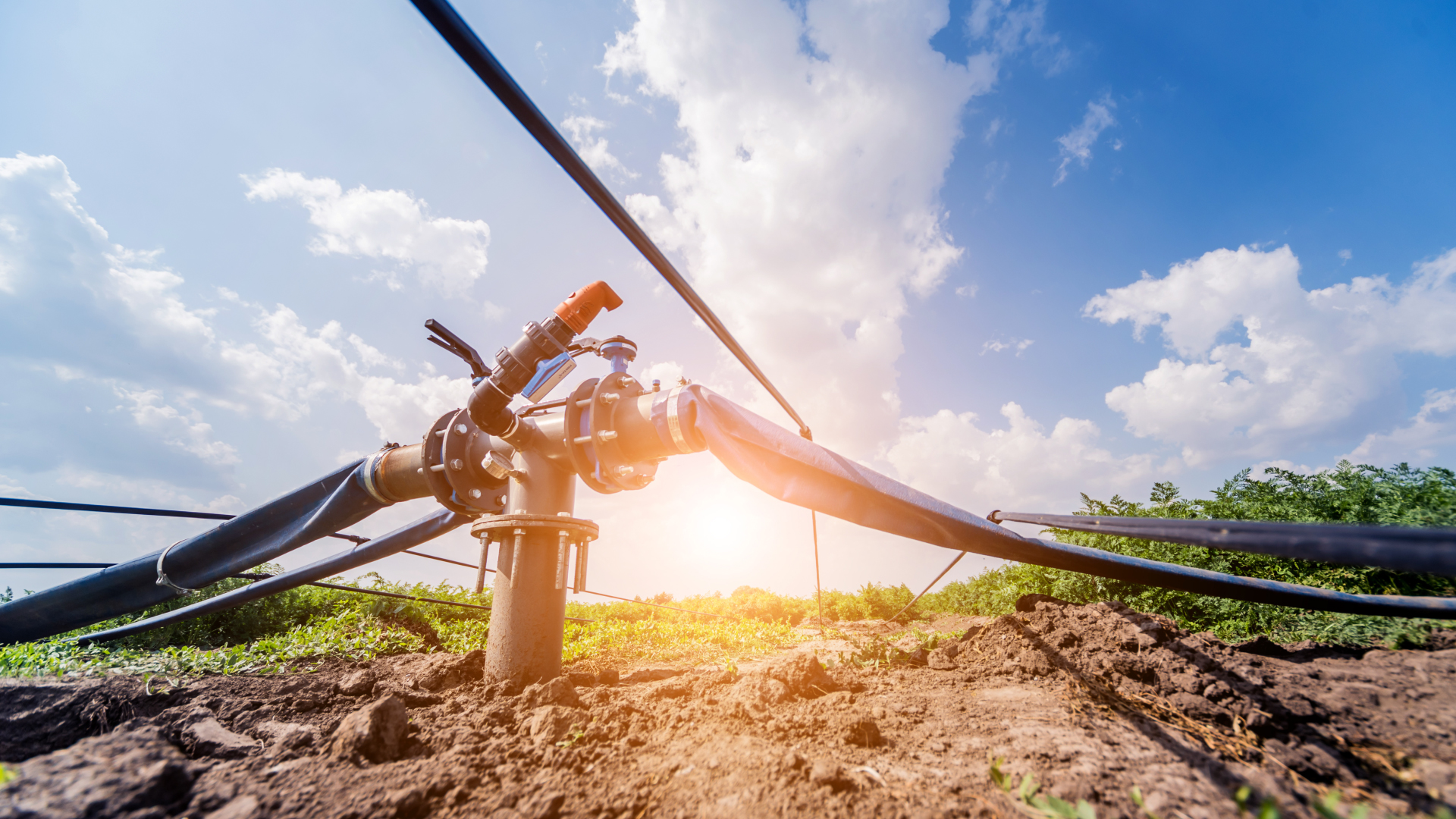
Soil Type and Crop Requirements
The type of soil on your farm affects water flow and absorption, making it an important factor when selecting a farm irrigation pipe. Sandy soils require pipes that can deliver water in small, frequent amounts, as they have high permeability, which allows water to drain quickly. Clay soils, on the other hand, need pipes that allow slower water delivery to prevent surface runoff. Knowing your crop’s water needs is also essential. For example, crops with deep root systems require a consistent water supply, which should influence your choice of irrigation tube material and size.
Water Pressure and Flow Rate
Understanding your system’s water pressure and flow rate is essential for choosing the right agriculture irrigation pipe. Low-pressure systems, like drip irrigation, require flexible pipes with smaller diameters, while high-pressure sprinkler systems need pipes with greater strength and larger diameters to handle the water flow. Each type of farm irrigation channel material—whether it’s Polyethylene (PE), Polyvinyl Chloride (PVC), or steel—has different capabilities when it comes to handling water pressure and distributing water effectively across the field.
Environmental Conditions
Environmental factors such as temperature, sun exposure, and weather conditions also influence the durability of irrigation pipe. In hot climates, pipes exposed to direct sunlight need to be UV-resistant to prevent degradation. PE pipes, for example, offer great UV resistance, making them ideal for outdoor use. Extreme temperature variations can cause pipes to expand and contract, leading to cracks or leaks, so choosing a material that withstands these fluctuations is crucial for long-term reliability.
Budget and Long-Term Costs
When selecting an agriculture irrigation pipe, the initial cost is just one consideration. Durable, high-quality materials may come with a higher upfront cost, but they often reduce maintenance expenses and last longer, making them more cost-effective over time. Additionally, if you plan to expand your irrigation system in the future, consider a farm irrigation channel that can be easily adapted or connected to new infrastructure, minimizing the need for costly replacements.
Types of Agriculture Irrigation Pipe: Materials and Their Pros & Cons
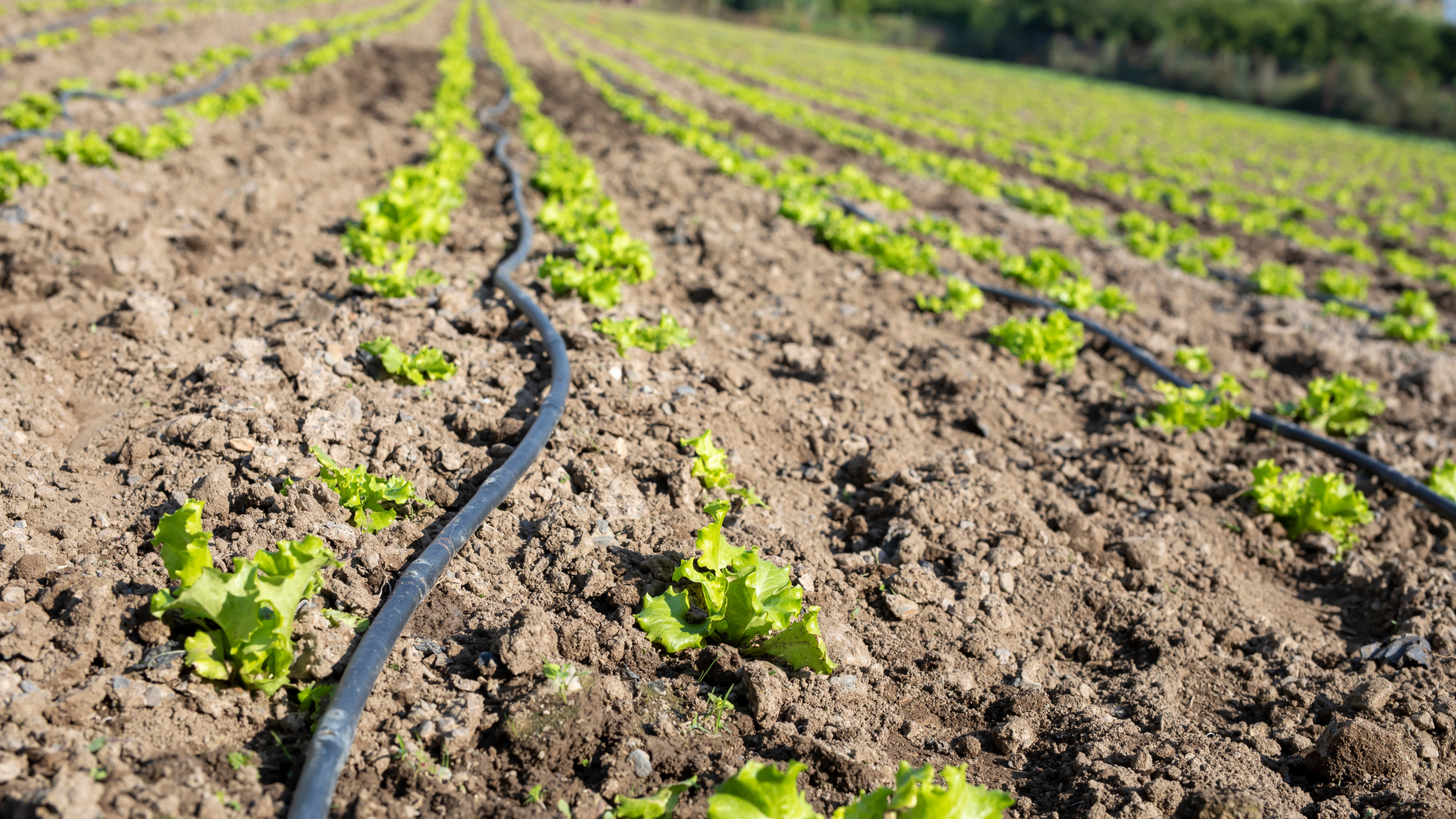
Polyethylene (PE) Pipes
Polyethylene (PE) pipes are flexible, lightweight, and resistant to UV rays, making them ideal for drip irrigation systems. These pipes are made from high density polyethylene, which provides excellent durability and resistance to chemicals and corrosion. PE pipes are often available in coiled forms, allowing for easier installation and maneuvering in complex or uneven layouts. Commonly referred to as HDPE pipes, they are suitable for both above-ground and underground irrigation systems. They are easy to install and work well in low-pressure systems. However, PE pipes may not be the best choice for high-pressure systems as they have limited strength compared to more rigid materials.
Polyvinyl Chloride (PVC) Pipes
PVC pipes are durable, handle high pressure, and are a popular choice for main water lines and sprinkler systems. These pipes are specifically designed for agricultural and high-pressure applications. Their strength makes them suitable for larger farms with high water demands. PVC pipes are also resistant to chemical corrosion. Additionally, PVC pipes and fittings are corrosion resistant, making them ideal for use in various soil and environmental conditions. The downside is that they can become brittle when exposed to extreme heat or cold, so care must be taken when installing them in such environments. Due to their reliability and versatility, PVC pipes are the preferred choice for many farmers and institutions.
Steel Pipes
Steel pipes offer superior strength and are ideal for high-pressure irrigation channel systems. They can handle heavy loads and are highly durable, making them a good option for large farms or industrial agriculture. However, steel pipes are more expensive than other options and can rust over time, especially if exposed to water with high mineral content.
Lay-Flat Hoses
Lay-flat hoses are easy to install and move, making them an excellent choice for temporary irrigation setups or for farms with changing irrigation needs. They are commonly used for surface irrigation systems but may wear out quickly if exposed to heavy use or harsh weather conditions.
Flexible Hoses
Flexible hoses are versatile and commonly used in small-scale operations, such as micro-irrigation and low-pressure drip systems. They are easy to maneuver and ideal for systems where flexibility and ease of installation are priorities, allowing quick adaptation to different field layouts and irrigation needs. However, they may not last as long as more rigid pipes and are less suitable for high-pressure applications.
Matching Irrigation Pipe to Your Irrigation Method
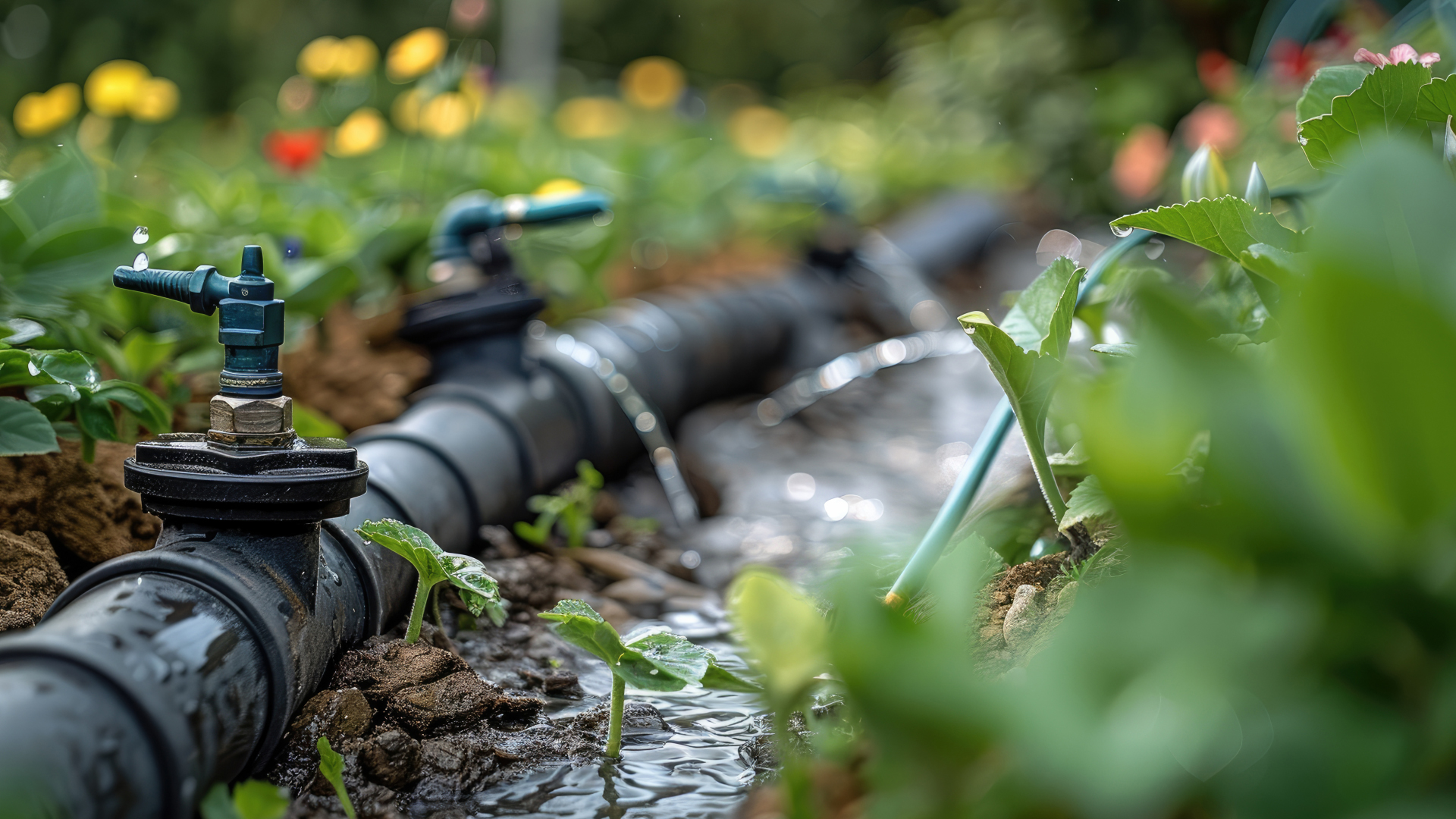
Drip Irrigation
Flexible pipes like PE pipes are ideal for drip irrigation due to their ease of installation and ability to deliver water precisely to the base of each plant. These farm irrigation pipe need to be UV-resistant and capable of withstanding constant exposure to sunlight.
Sprinkler Irrigation
Sprinkler irrigation systems require pipes that can handle higher water pressure, such as PVC or steel pipes. The farm irrigation channel material should be durable, with well-sealed joints to prevent water loss.
Surface Irrigation
In surface irrigation, where gravity feeds water through channels, larger pipes with lower pressure capacity are often used. Lay-flat hoses or large-diameter PE pipes are typically ideal, as they can handle the lower pressure without requiring rigid material strength.
Subsurface Irrigation
Subsurface irrigation systems, which place pipes underground, require materials that resist degradation from soil chemicals and moisture. PE and PVC pipes are common choices for these systems, given their resistance to corrosion and long-term durability.
Pipe Diameter and Length: Ensuring Optimal Water Flow
How to Calculate Pipe Diameter for Your Farm
The diameter of the pipe affects the water flow and pressure throughout the system. A smaller diameter increases water pressure but reduces flow, while a larger diameter decreases pressure but allows more water to pass through. To choose the correct agriculture irrigation pipe diameter, calculate the water demand based on the number of crops, their water requirements, and the system’s pressure capabilities.
Length and Distribution Needs
Longer pipes can cause pressure to drop as water travels through the system. When designing your irrigation layout, it’s essential to account for pipe length and its impact on pressure. Choosing the right irrigation channel diameter and material can help maintain consistent water delivery across longer distances, minimizing water loss.
Installation Tips for Irrigation Pipe
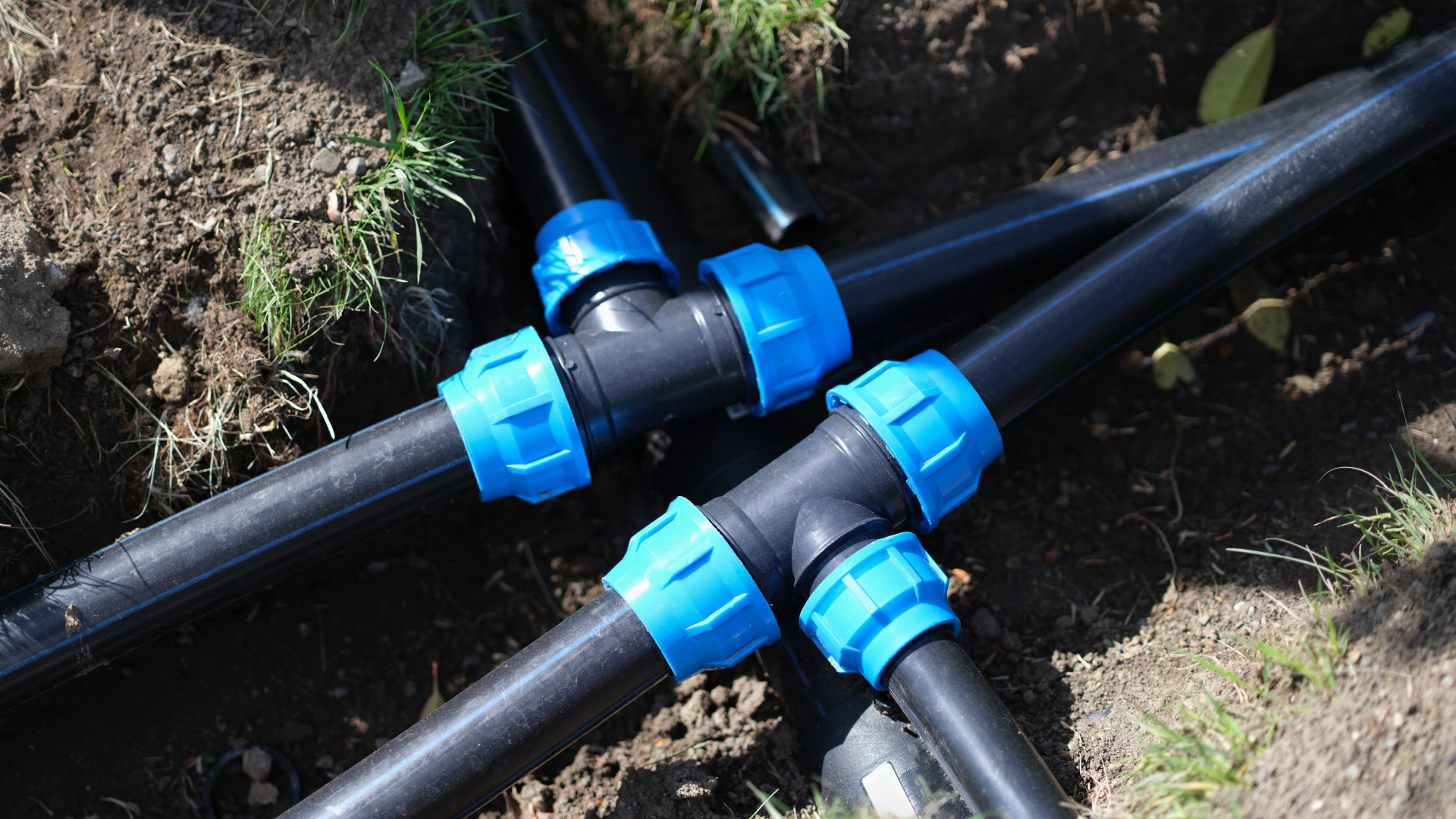
Proper pipe layout is essential to ensure even water distribution and minimize water loss. Fittings and connections must be secured tightly to prevent leaks. When installing an agriculture irrigation pipe, consider the slope of your land, as incorrect slopes can cause uneven water flow or pooling. Additionally, decide whether the pipes will be installed above ground or underground, as the type of ground or terrain—such as uneven or complex surfaces—can influence installation methods and the selection of pipe materials.
Maintenance and Lifespan of Agriculture Irrigation Pipe
Regular maintenance, such as checking for clogs, leaks, and cracks, can extend the lifespan of your agriculture irrigation pipes. Pipes should be inspected regularly for wear, especially in high-pressure systems. Replacing damaged or worn-out sections promptly helps prevent larger system failures.
Common Mistakes to Avoid When Choosing and Using Irrigation Pipes
Selecting and using the right irrigation pipes is essential for the success of any agricultural operation. However, even experienced farmers can make mistakes that compromise the efficiency of their irrigation systems, increase labor costs, and reduce the effectiveness of water supply to crops. By being aware of these common pitfalls, you can ensure your irrigation systems, including drip irrigation systems, deliver optimal performance and support healthy crop growth.
1. Choosing the Wrong Pipe Material for the System
One of the most frequent mistakes is selecting pipes that are not suitable for the specific irrigation method or environmental conditions. For example, using pipes that lack corrosion resistance in areas with high soil moisture or chemical exposure can lead to leaks and system failures. Always match the pipe material—such as PVC, HDPE, or polyethylene—to your irrigation system’s requirements and the conditions of your agricultural land.
2. Incorrect Pipe Sizing
Underestimating or overestimating the required pipe diameter can result in poor water distribution. Pipes that are too small may restrict water flow, causing uneven moisture levels across your fields, while oversized pipes can lead to unnecessary costs and inefficient water use. Carefully calculate the appropriate size based on your system’s water supply needs and the number of crops being irrigated.
3. Neglecting Regular Maintenance
Failing to inspect and maintain irrigation pipes can lead to clogs, leaks, and reduced system performance. Regularly check for signs of wear, especially in drip irrigation systems where small blockages can significantly impact water delivery. Promptly repairing or replacing damaged pipes helps maintain consistent water supply and prevents costly downtime.
4. Improper Installation
Incorrect installation, such as poorly sealed joints or improper pipe alignment, can cause leaks and water loss. Ensure that all fittings are secure and that pipes are laid out according to the design specifications of your irrigation system. Proper installation not only improves performance but also reduces labor costs associated with future repairs.
5. Ignoring Compatibility with Drip Irrigation Systems
When integrating new pipes into existing drip irrigation systems, it’s important to ensure compatibility in terms of material, diameter, and pressure rating. Mismatched components can lead to leaks, inefficient water use, and increased maintenance needs. Always consult with an irrigation engineer or supplier to verify that all parts of your system work seamlessly together.
By avoiding these common mistakes, farmers can enhance the efficiency and longevity of their irrigation systems, ensuring reliable water supply to crops while minimizing labor costs and maximizing agricultural productivity.
Conclusion: Choosing the Right Irrigation tube for Your Farm
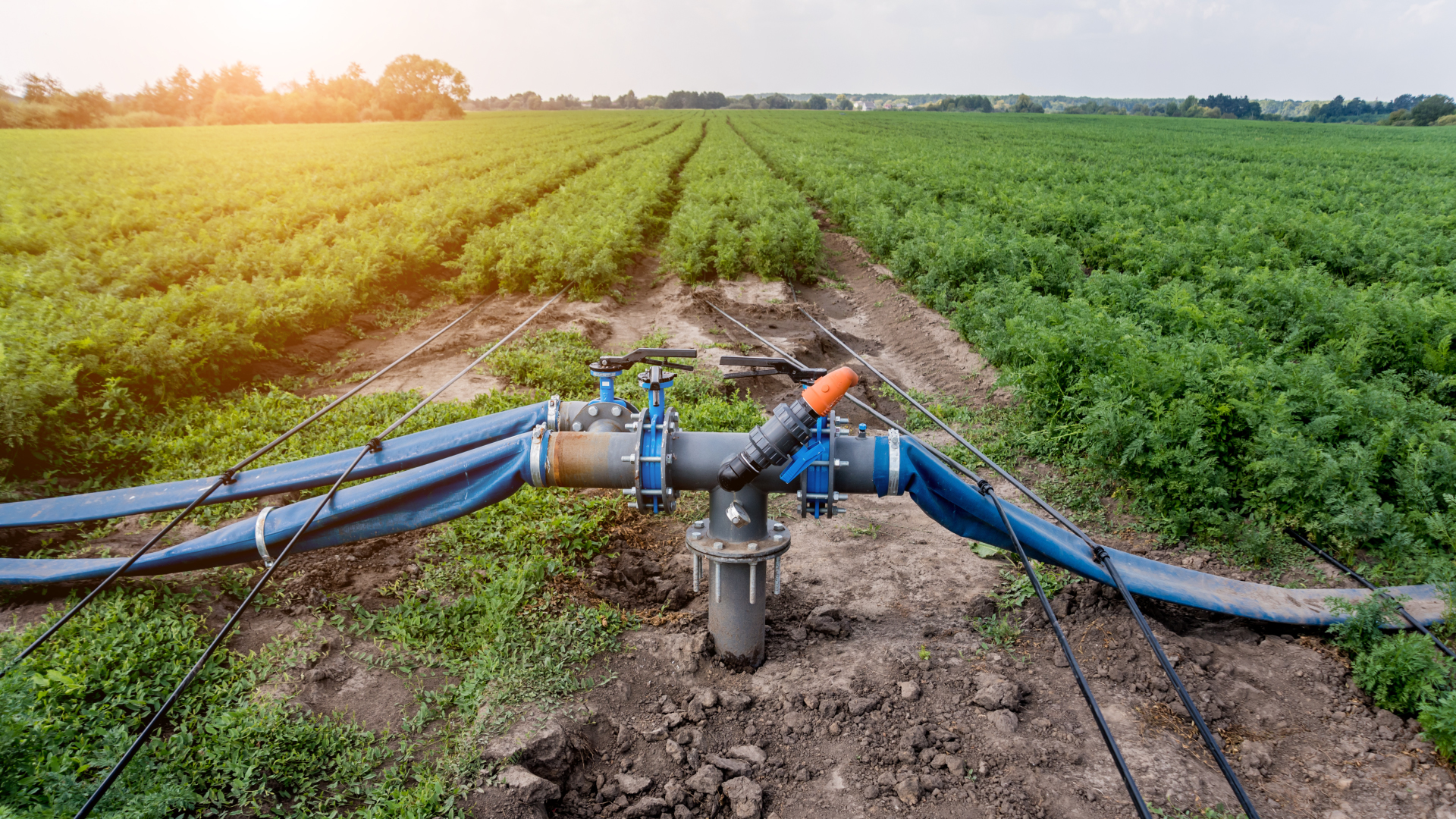
Choosing the right agriculture irrigation pipe for your farm involves balancing several factors, including soil type, water pressure, environmental conditions, and budget. By considering these elements, you can ensure that your irrigation channel system operates efficiently, delivering water to crops in a way that maximizes both productivity and sustainability.


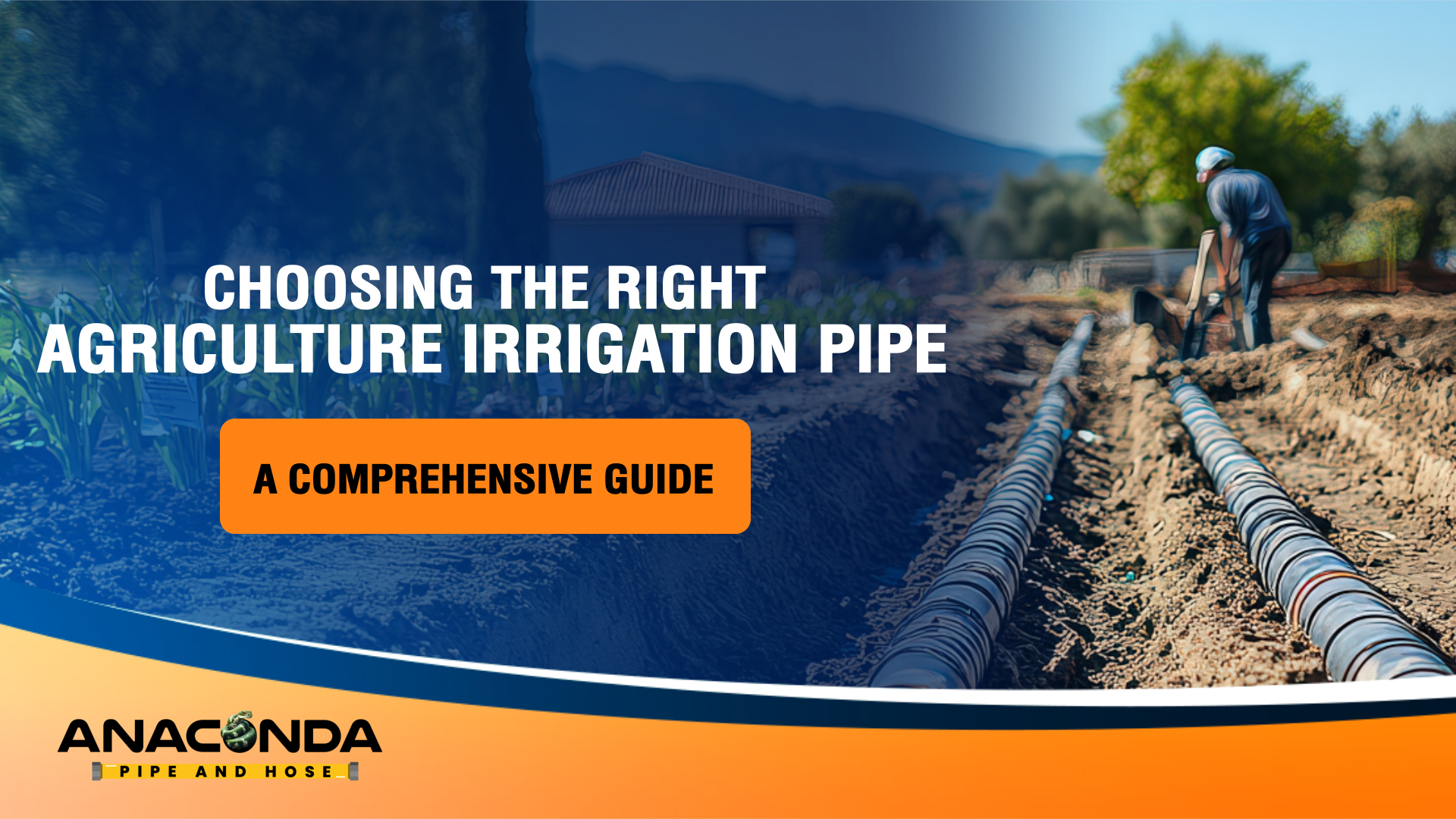
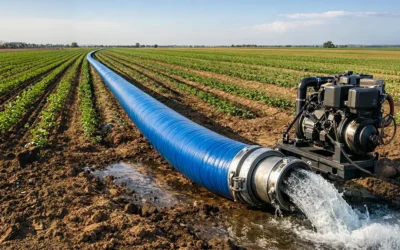
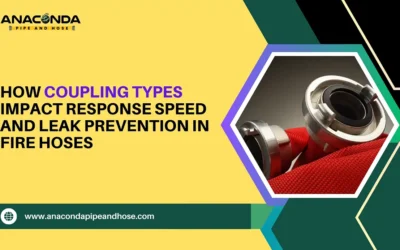
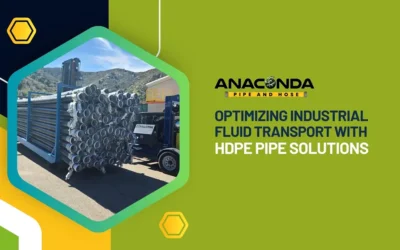
0 Comments